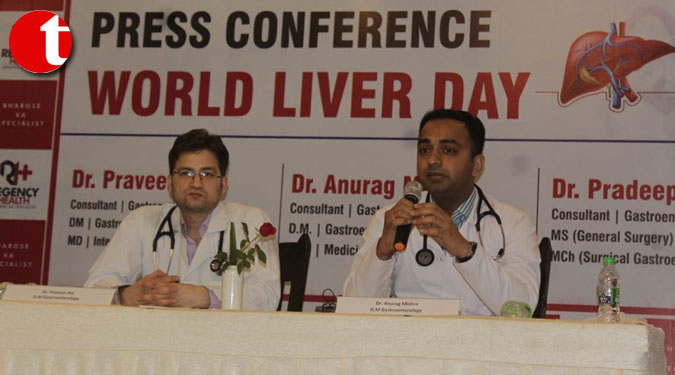TIL Desk Lucknow/ Unhealthy lifestyles, stress and increasing exposure to toxins in food and water have in recent years led to a dramatic rise in lifestyle diseases including liver diseases and doctors at Regency Super-speciality Hospital, Lucknow said in a Press Conference that sharing personal care items like razor and nail clippers make you prone to liver infection such as Hepatitis B and Hepatitis C.
Items such as razors, nail scissors, nail clippers, toothbrushes and possibly even towels may carry traces of blood and sharing them with an infected person may present a risk of acquiring hepatitis C infection. Hepatitis C is more commonly associated with sharing needles or equipment for injecting drugs. It can also be spread by having had a tattoo or body piercing using non-sterile equipment.
“People with hepatitis C often worry about giving it to others that they live with. However, it would be very hard to transmit HCV unless there is direct blood to blood contact. Things like razors, toothbrushes, nail clippers and other personal hygiene items can spread hepatitis C. Besides personal care items, studies have suggested that there is a significant contamination of barber hair clippers with blood and blood-borne viruses. Hepatitis B was detected with enough DNA copies to pose a risk of transmitting infection. We have been getting many cases especially from the rural areas where people don’t maintain personal hygiene. It becomes essential to follow certain protocols when it comes to personal hygiene,” said Dr Praveen Jha, MD, DM, Consultant Gastroenterology, Regency Superspeciality Hospital, Lucknow.
It’s important to note that hepatitis C isn’t easy to catch. If we take a few precautions, it’s almost impossible to pass on the disease to someone else as it is spread only through exposure to an infected person’s blood. People are encouraged to come forward for testing if they have ever injected drugs, including steroids or tanning products, even if it was only once or some time ago. However, one should also remember that it cannot be spread coughing, sneezing, touching, breastfeeding, sharing utensils or glasses, casual contact, sharing food and water and mosquito or other insect bites.



